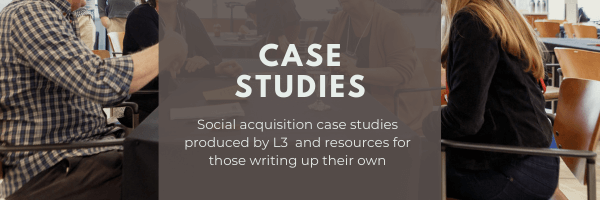
L3 is producing a case study series and provides support for other organizations looking to write up their own cases of social acquisitions.
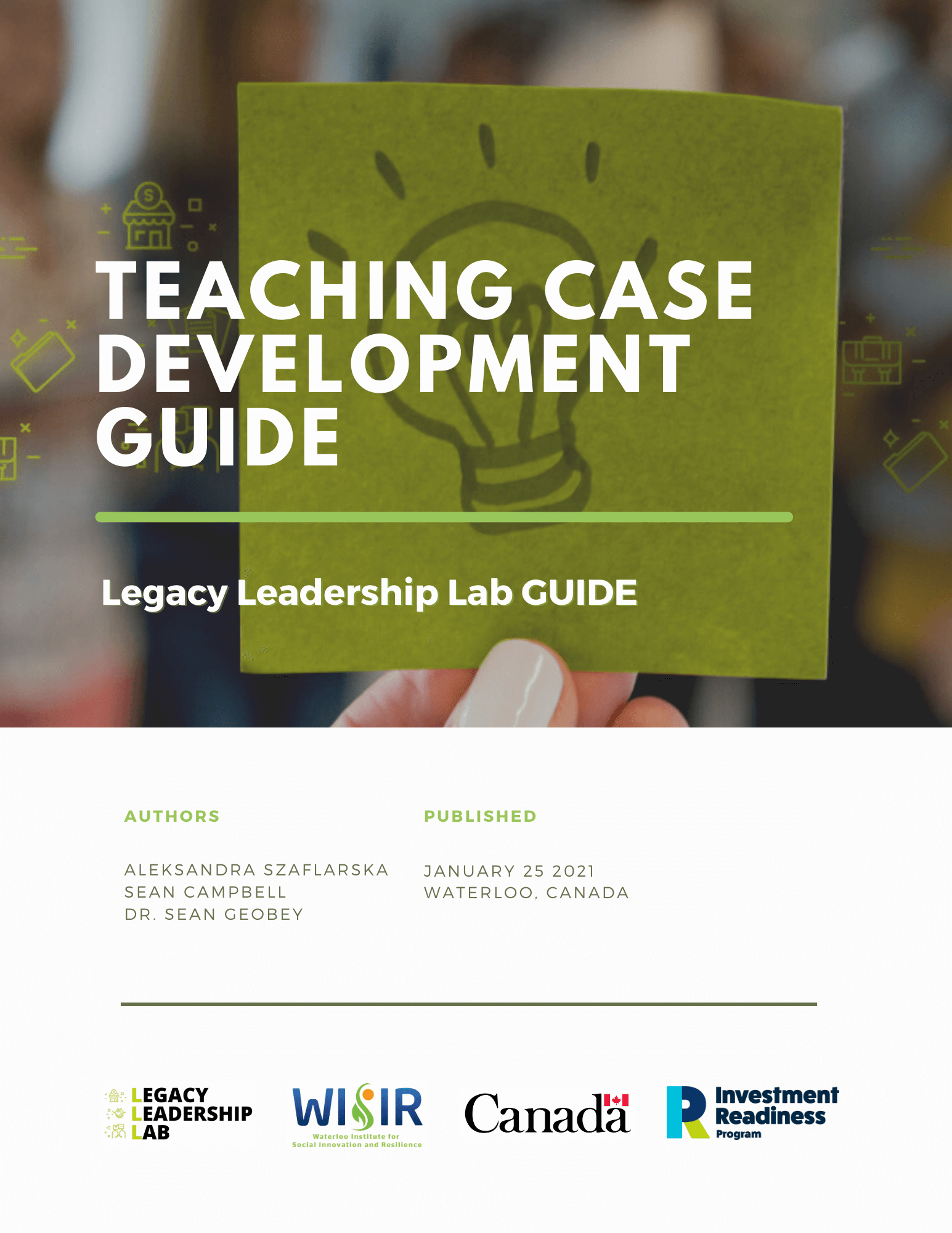
The Social Acquisition Teaching Case Development Guide (.pdf) offers research and education practitioners a process for creating teaching cases that can be used to help people understand some of the complex challenges that social acquisitions present in the field. The guide contains the template and the first four case studies, but you can download these as separate documents as well using the links below.

The case study is meant to demonstrate the challenges and opportunities of social acquisition as experienced from the perspective of key stakeholders. The cases should represent a range of perspectives on social acquisitions, as well as the range of points along an enterprise’s life cycle. This will include explorations of the transition from the seller’s perspective and the buyer’s perspective, as well as of sustaining the business post-transition.
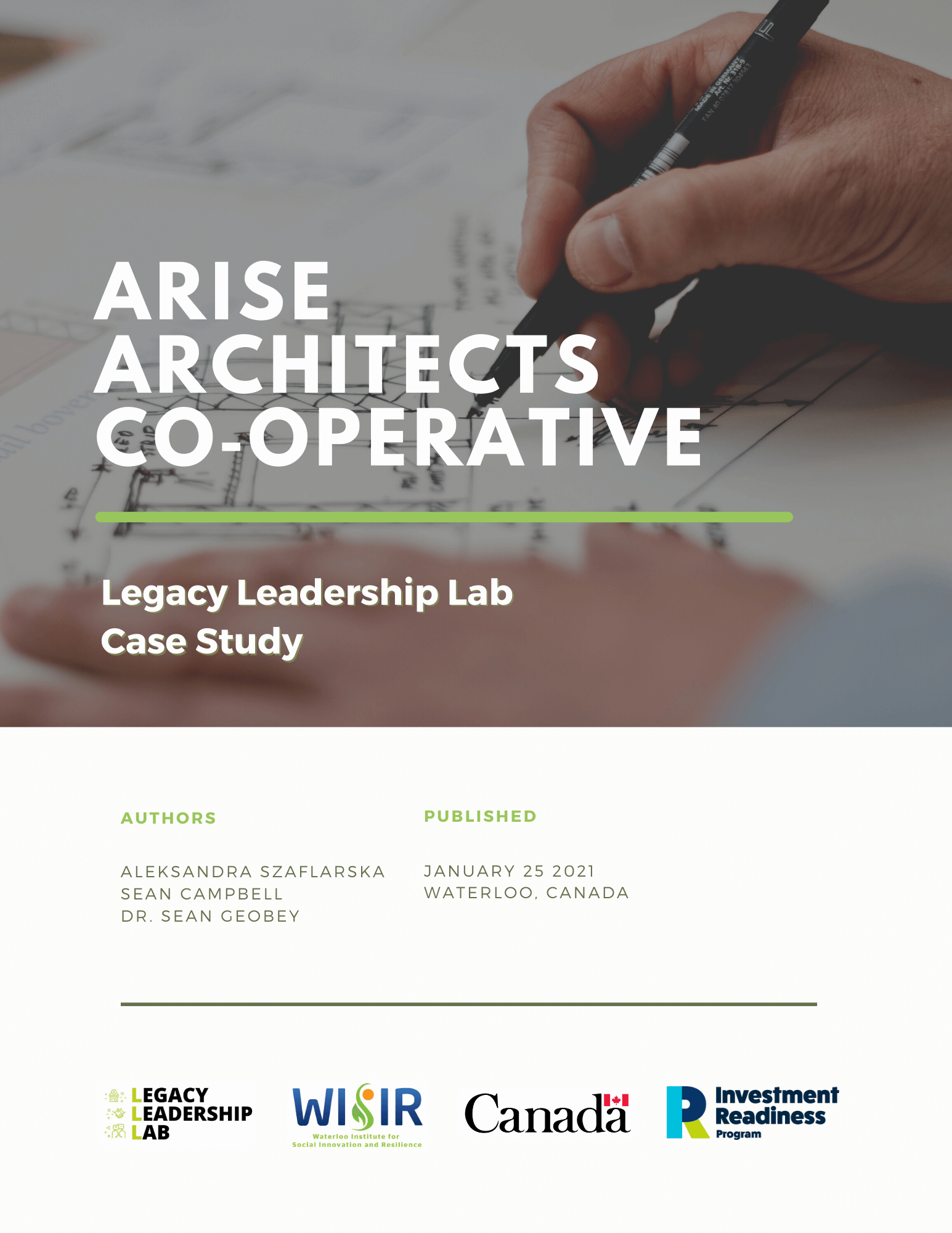
Arise Architects Co‐operative began as J. David McAuley Architect Inc., a practice established over 40 years ago – the oldest architectural firm in Guelph. As David McAuley prepared to retire, he looked for a way to sustain his professional legacy, empower his employees, and have more agency over his work as he moved toward retirement. In order to achieve these goals, a worker co‐operative was established and announced in October 2019. In the lead up to this transition, existing employees had to consider the pros and cons of co‐ownership, shared risk, and democratic governance.
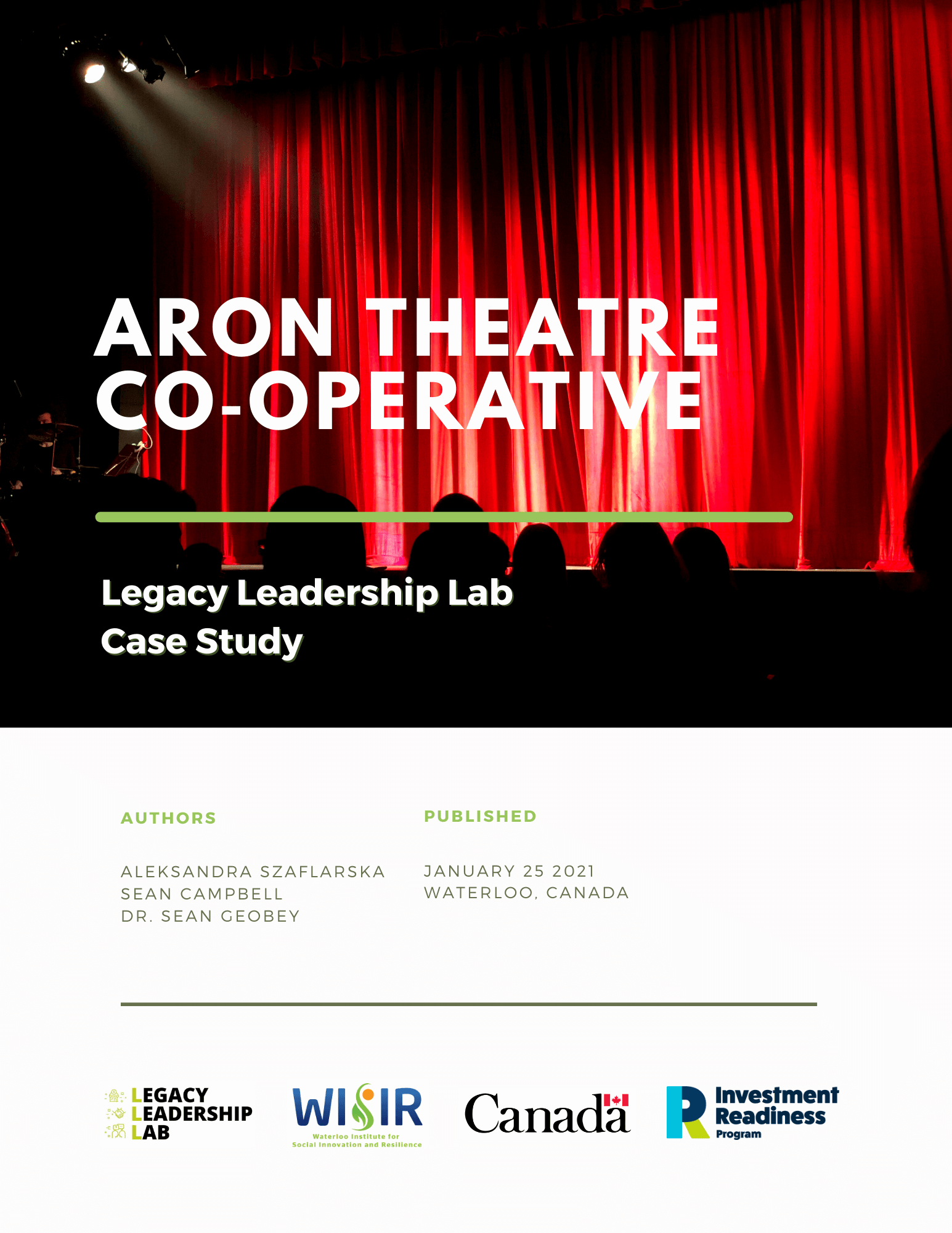
Aron Theatre is a non‐profit community‐based co‐operative in Campbellford, Ontario. After a successful conversion in the early 2010s, the theatre continues to benefit from broad community‐based involvement and funding that support its management, operations, and capital investments. Campbellford, however, struggles with the common problems associated with rural Ontario. The broad community involvement that sustains Aron Theatre now needs to be transferred to the new generation of Campbellford residents to support the community‐based model.
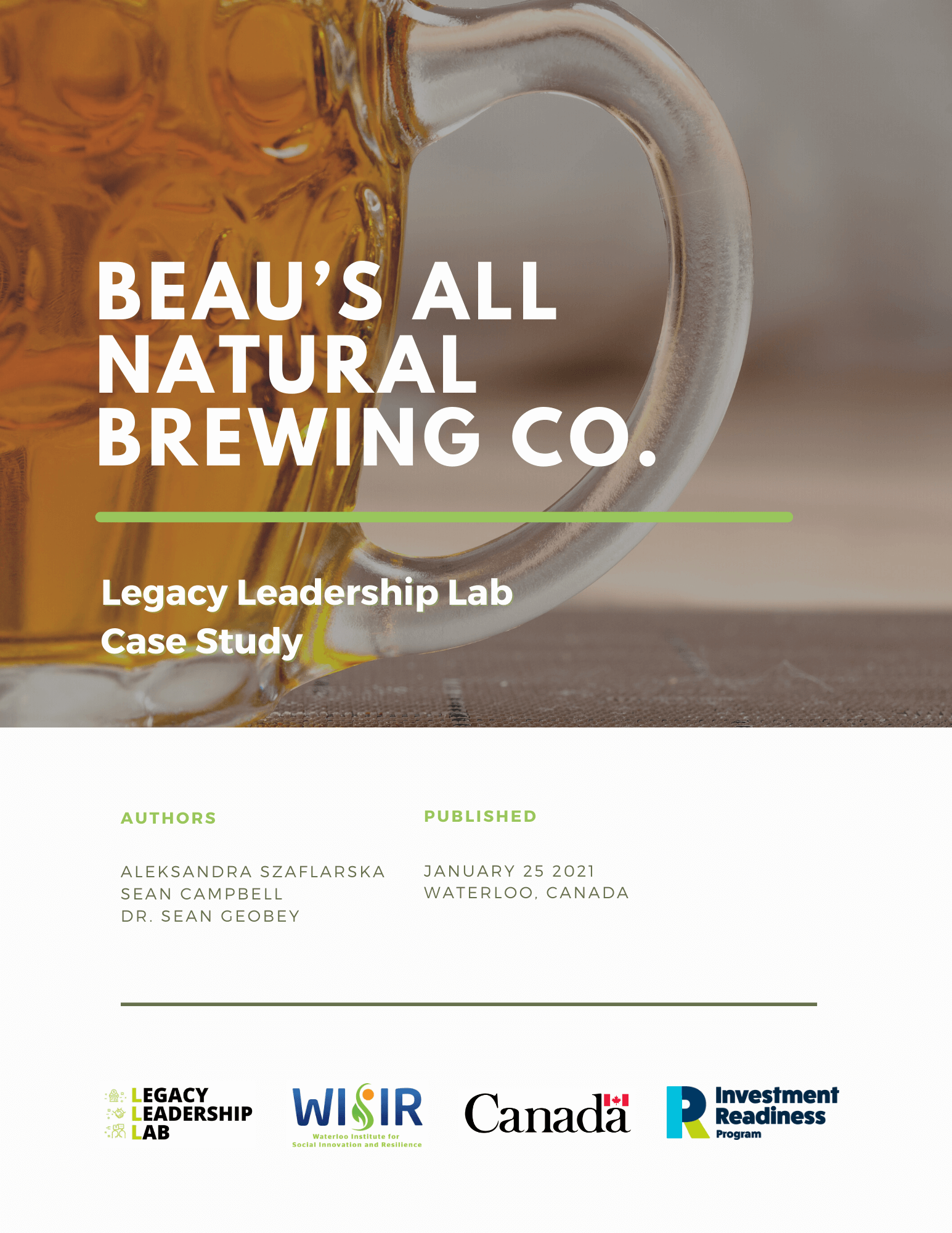
Beau’s All Natural Brewing Company was founded in July 2006 by father‐son pair Steve and Tim Beauchesne. The craft brewery is Canada’s largest organic beer producer and operates out of Vankleek Hill, located approximately 50 minutes outside of Ottawa, Ontario. Beau’s experienced year‐over‐year compounded growth of 45% over the first 10 years of operation. This quick growth situated it as a leader in the craft beer sector. Beau’s beer was featured in pubs and restaurants across the Ottawa and Greater Toronto Area shortly after opening, expanding into New York State in 2014. The company’s beers were available across Canada by 2017. Their beers have won “more than 100 awards for brewing, package design and business practices”. All Beau’s beers continue to be brewed with 100% organic malt and hops, and local spring water.

In 2012, the owner of L’Épicerie Leonard, the only grocery store in the small town of Moonbeam, Ontario, decided to shut down the business unless a buyer was found by August of that year to keep the grocer in this predominantly Francophone community. Following a $5,000 grant from the local municipality to study the feasibility of a conversion, pro-bono financial and legal advice from future volunteer board members, and support from the Conseil de la Cooperation de l’Ontario (CCO), residents of Moonbeam came together to raise $330,000 and were able to begin ownership of the store on June 7, 2013 as Épicerie Co-op Grocery Moonbeam.
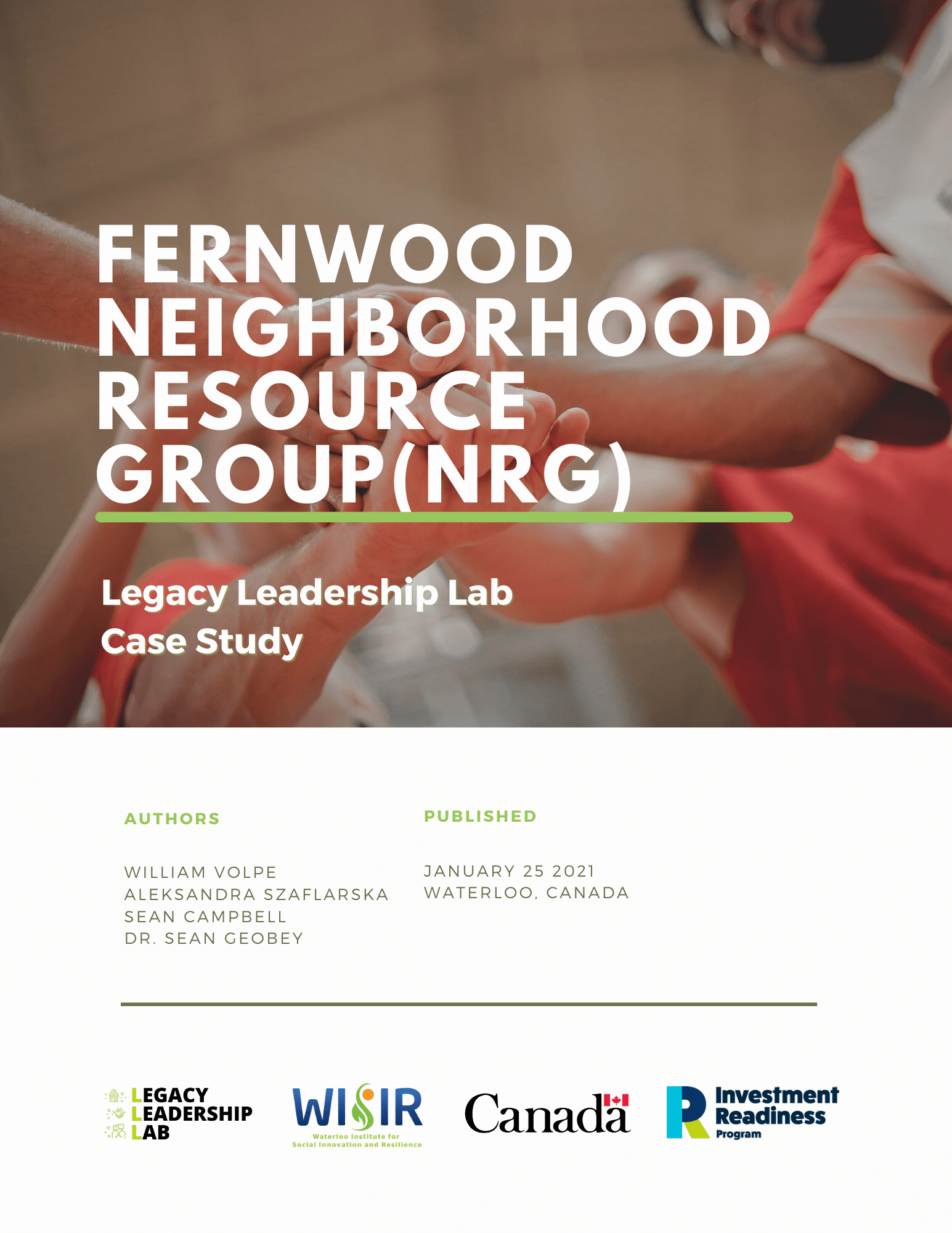
Fernwood NRG is a non‐profit organization in Victoria, BC that provides services to the local community including childcare, recreational activities, and affordable housing. In 2005, Fernwood began acquiring local businesses. Needs aligned as both Fernwood and the small businesses were in need of support to generate revenue and become more financially resilient ‐ these goals could be achieved through collaboration. As COVID‐19 continues to disrupt communities across Canada, Fernwood NRG could use its social acquisition model as a tool to aid in the community’s recovery. A key challenge will be selecting businesses that work towards the goals of the organization and generate stable revenue.
Please contact L3 if you have any questions, have cases to add to this webpage, or are looking for support writing up your own cases!
